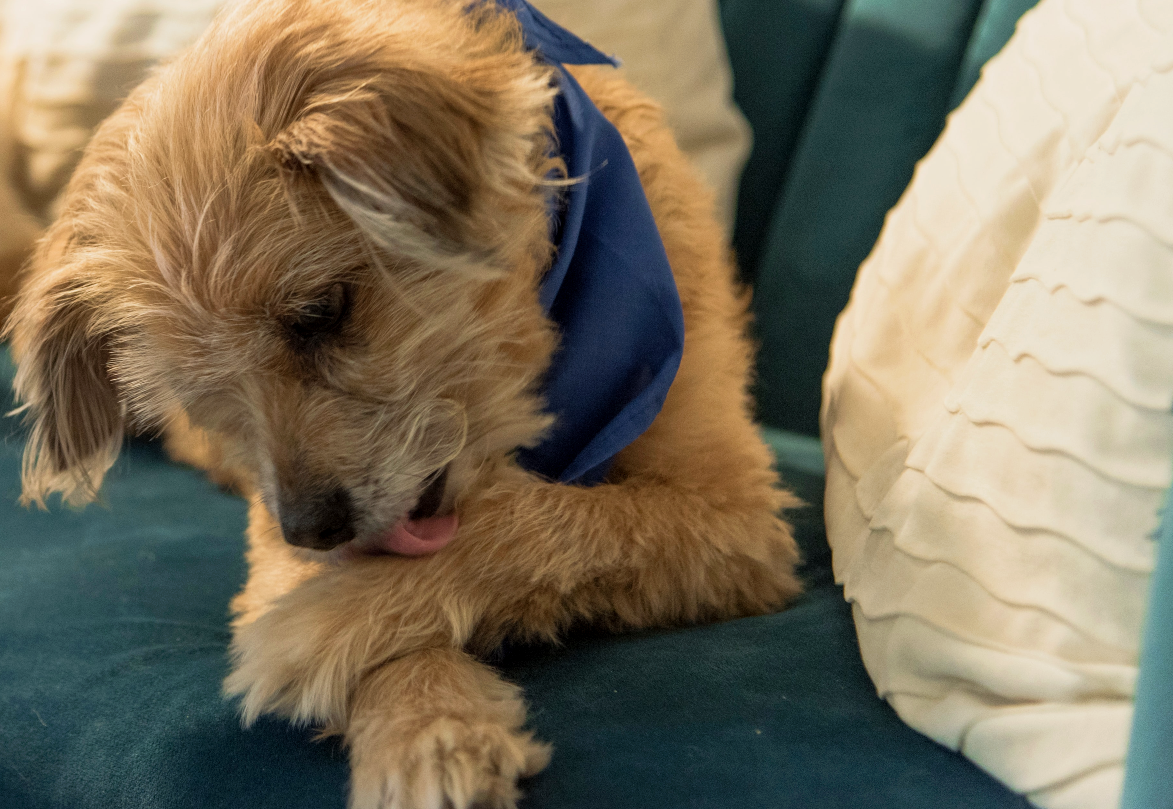Unveiling the Mystery Behind Paw Licking
I often caught my dog incessantly licking his paws. After a while, I began to wonder what was causing him to do this. Was it allergies? Boredom? Stress? Pain? Or all the above?
After doing a lot of research and talking to my colleagues at Northpoint Pets, I was able to narrow the list down to two possibilities: allergies and stress.
I began addressing each of those potential causes and started to see immediate improvements. I’ll describe those in a minute. But first, you need to know that dogs can lick their paws for many reasons and it’s not always easy to track down the source or solution.
I wanted to share my findings with you so you can have a solid starting point for helping your pet stop excessive paw licking.
Aside from grooming, here are some of the more common reasons dogs lick their paws:
-
Allergies
Allergies may be caused by external or internal sources. External allergens are typically skin irritants such as pesticides, cleaning products, pollen, dust, plants, and even wood or pellet stoves..
Internal allergens will typically be from food and cause a reaction in the gut. For my pup, when I removed carbohydrates in the form of kibble and started feeding a raw diet, I noticed a marked decrease in his paw licking..
If you can identify to the allergen, and it can be avoided, the paw licking should subside.
-
Anxiety or Boredom
Another common cause of paw licking is anxiety or boredom. Or both. Paw licking is a mental stimulus that can soothe a stressed dog.
I noticed that my pup tended to lick his paws more when he spent a lot of time alone. He is a chihuahua mix that loves to be with his people. When he is alone too much, he gets anxious. The same is true for dogs with separation anxiety or dogs that are overly fearful of loud noises like fireworks or thunderstorms.
-
Pain or Discomfort
Paw licking can also caused by injury, splinter, infection, or a nail issue. If there is an injury or problem, these should be addressed and corrected. If necessary, a visit to the vet may be required to provide appropriate medical intervention.
Here are some suggestions of products we recommend to address some of these issues in order to reduce paw licking:
- Animal Essentials Seasonal Allergy drops
- Nordic Naturals Omega-3 Fish Oil
- NWC Total Biotics
- Adored Beast Healthy Gut
- Skout’s Honor Prebiotic Pet Balm
- Super Snouts Rad Pad
Persistent paw licking can simply be grooming. However, if it comes on suddenly, persists for long periods of time, or is accompanied with redness, swelling, odor, bleeding, limping, or other possible signs of pain and infection, you should make an appointment to see your veterinarian.
*This article is for informational purposes only. It is not meant to provide medical advice or replace the advice of a qualified veterinarian.






 Recent FDA Pet Food Recalls & Warning Letters. Images captured from FDA website. Date accessed: 15Mar2023.
Recent FDA Pet Food Recalls & Warning Letters. Images captured from FDA website. Date accessed: 15Mar2023.